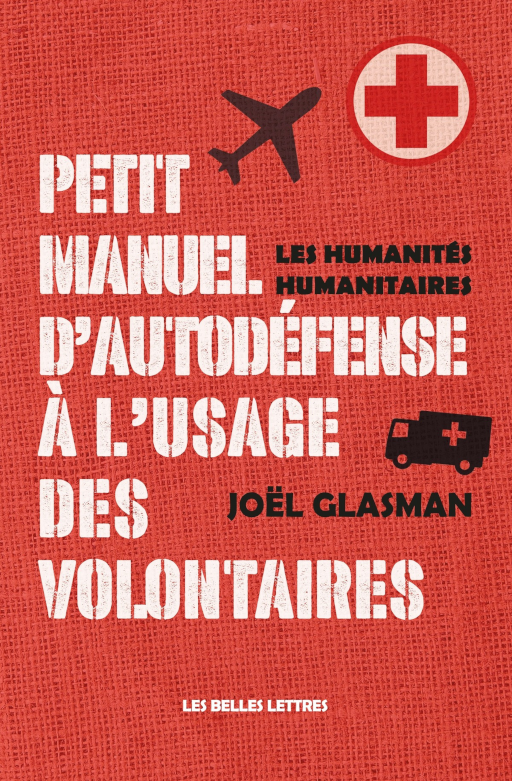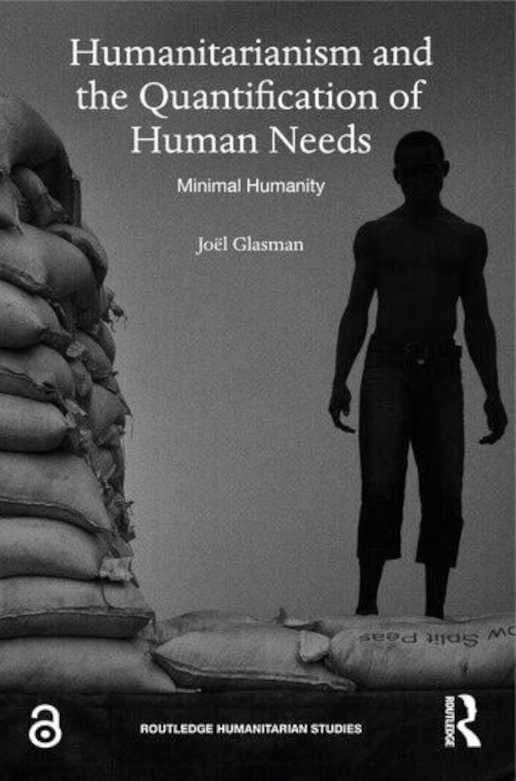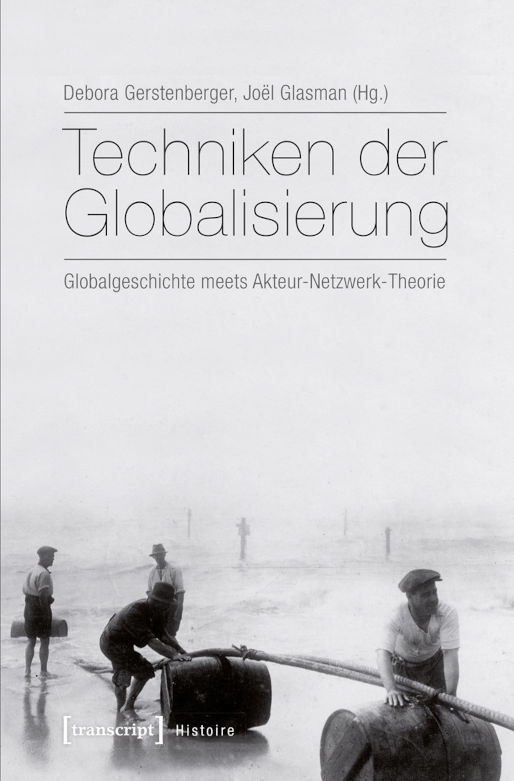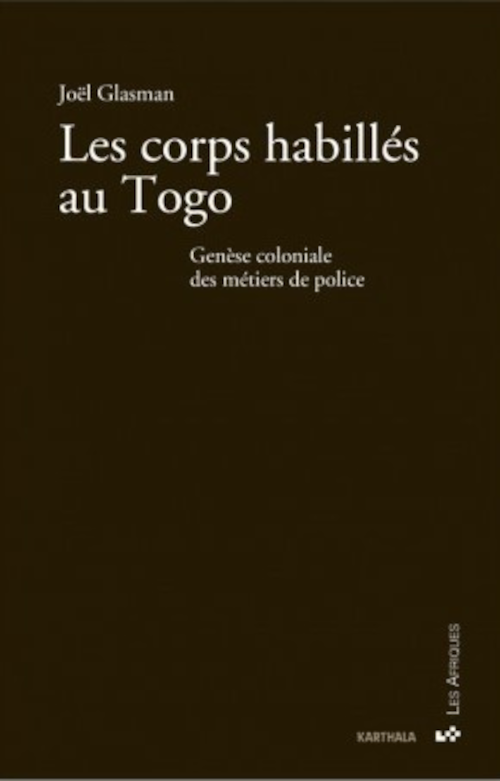Books
Les humanités humanitaires. Petit manuel d’auto-défense à l’usage des volontaires. Paris. Les Belles Lettres, 2023, 426 p.
Humanitarian action involves hard choices. Should we accept access conditions imposed by jihadists? Should we leave refugee camps if aid is diverted? Can we accept donations from any private company? Should humanitarian organisations prioritise the fight against global warming? This first Humanitarian Humanities textbook offers a time for reflection. From the history of humanitarian action to the anthropology of global health and the sociology of massacres, this handbook provides an overview of the most useful research for thinking in emergencies. An introduction to the human and social sciences for those who help others to save their lives and dignity.
This book won the Red Cross Foundation Research Prize (2024)
‘indispensable pour tous ceux qui s’interrogent sur le sens et les limites de l’action humanitaire’, Sylvie Ayimpam, Anthropologie & Développement
‘La lucidité est le legs profond d’un tel travail, qui permet de se déprendre des fausses évidencs. Et de dépasser la stupeur’ André Loez, Le Monde
‘Stimulant, l’ouvrage a le bon format pour se glisser dans le sac à dos de ceux qui partiront sur le front de l’aide. II trouvera aussi sa place dans toutes les bonnes bibliothèques’ Hélène Frouard, Sciences Humaines
‘Joël Glasman’s work fills a real gap in the literature. Albeit dense, the content is remarkably easy to read, not least its descriptions of certain complex theoretical developments’, Sylvain Pénicaud, Humanitarian Alternatives
Reviews by: Hélène Frouard | André Loez | Sylvain Pénicaud
Minimal Humanity. Humanitarianism and the Quantification of Human Needs. London/New York. Routledge. Humanitarian Studies Series, 2020, 261p.
This book provides the first historical inquiry into the quantification of needs in humanitarian assistance. Ultimately the book argues that we cannot understand the global humanitarian aid movement, if we do not understand how humanitarian agencies made human suffering commensurable across borders in the first place. The book identifies four basic elements of needs: as a concept, as a system of classification and triage, as a form of material apparatus, and as a codified standard. Drawing on a range of archival sources ranging from the United Nations Refugee Agency (UNHCR), Médecins sans Frontières (MSF), and the Sphere Project, the book traces the concept of needs from their emergence in the 1960s right through to the modern day, and United Nations Secretary-General Ban Ki-moon’s call for “evidence-based humanitarianism”. Finally the book assesses how the international governmentality of needs played out in a recent humanitarian crisis, drawing on detailed ethnographic research of Central African refugees in the Cameroonian borderland in 2014-2016.
‘a fascinating example and an inspiration for further historical and social science research, especially on concepts, actors, and practices of global governance in the humanitarian field’, Agnes Bresselau Bressensdorf, Africa Spectrum
‘highly recommended for scholars of refugees, humanitarianism, data, and the production of knowledge’, Brett Schadle, African Studies Review
Reviews by : The International Review of the Red Cross dedicated a discussion forum to the book | Agnes Bresselau von Bressensdorf | Claudia Böhme | Brett L. Shadle | Alice Corbet | Marie-Luce Desgrandchamps | Dennis Dijkzeul, Carolin Funke, Sophie Zastrow | Heinrich Hartmann | Kevin K. O’Sullivan | Brendan Lawson | Thomas Lerosier | Alessandro Stanziani
Techniken der Globalisierung. Globalgeschichte meets Akteur-Netzwerk-Theorie, Bielefeld, transcript Verlag, 2016.
Global history is currently one of the most dynamic fields in the study of history. In the humanities and social sciences, actor-network theory (ANT) is one of the most sought-after theoretical tools. This volume examines the compatibility of global history and actor-network theory and combines them. The contributions show how the theoretical assumptions and methods of Bruno Latour, the most prominent proponent of actor-network theory, can contribute to renewing and sharpening the profile of global history. The starting point is not an omnipotent force called globalisation. Instead, the question is posed as to the people and techniques that were capable of forming far-reaching networks. The contributors provide answers to the question of which actors have globalised which phenomena.
‚Der Band kann […] überzeugend zeigen, dass ›Techniken der Globalisierung‹ mit der Akteur-Netzwerk-Theorie auf fruchtbare Art und Weise untersucht werden können‘ Katharina Kreuder-Sonnen, Comparativ
‘ein konzentriertes Kompendium von sehr gut erarbeiteten Beispielen, die eine Reflexion über die möglichen Anwendungsfelder der ANT und ihre Vor- und Nachteile ermöglichen‘ Julia Marinaccio, Socialnet
‘a detailed and comprehensive knowledge of the various publications on the subject and an empirical study of the Central African refugee camps in Cameroon’, Alice Corbet, Politique Africaine
‘This fascinating work deserves wide readership and demands deep reflection’, Gregory Mann, Routledge
‘a fascinating historical study of how and why humanitarian organisations quantified basic human needs over the course of the 20th century. Highly recommanded’ Jeff Rich, Choice Reviews
Reviews by: Julia Marinaccio | Katharina Kreuder-Sonnen
Les corps habillés au Togo. Genèse coloniale des métiers de police. Paris. Karthala. Les Afriques, 2015, 327p.
Les « corps habillés » – policiers, soldats, gendarmes, gardes… – jouent un rôle de premier plan dans l’histoire contemporaine de l’Afrique de l’Ouest. Si les organisations internationales de développement ont forgé depuis quelques années un discours fourni sur le « manque de professionnalisme » supposé des hommes en uniforme, on manque en revanche de véritables enquêtes historiques à leur sujet. Cet ouvrage retrace l’histoire des métiers de l’ordre au Togo depuis la toute première troupe de police de l’époque allemande jusqu’aux compagnies d’infanterie togolaise post-indépendance, en passant par les tirailleurs, gardes-cercle et policiers de l’époque française. Ces hommes, qui constituaient plus du tiers des employés de l’État, étaient au centre des relations entre administrateurs coloniaux et populations locales. L’auteur analyse les stratégies de la puissance coloniale pour les assujettir – et à travers eux, toute la société coloniale – et les tactiques déployées par les agents du maintien de l’ordre pour tirer profit de leur ressource spécifique, leur « capital martial ». L’étude de leurs stratégies professionnelles permet de s’affranchir des paradigmes mécanistes et linéaires jusqu’ici dominants, qui ne voient dans les forces de l’ordre que de simples instruments du pouvoir en place, sous le mode des « agents de la modernité » (théories de la modernisation), des « mercenaires » de la bourgeoisie européenne (théories marxistes) ou encore des « vecteurs » de l’occidentalisation (théories culturalistes). Cet ouvrage met au contraire en exergue les tâtonnements, les hésitations et les conflits qui structurent ce champ professionnel, dont le paroxysme fut le coup d’État de 1963 contre Sylvanus Olympio. Il permet de saisir toute l’importance de ce corps de métier dans la construction historique des États africains contemporains.
‘un livre remarquable qui sera d’un intérêt premier pour les chercheurs s’intéressant au maintien de l’ordre et ceux qui cherchent à historiciser l’État en Afrique et au-delà’, Mirco Göpfert, Politique Africaine
‘cette plongée au cœur du pouvoir d’État est captivante, et on en recommande la lecture autant aux historiens de la colonisation et de l’Afrique qu’aux spécialistes des polices et du maintien de l’ordre’ Céline Pauthier, Annales. Histoire, Sciences Sociales
‘an indispensable reading for all scholars interested in colonial policing and the historicity of the state in Africa.’ Romain Tiquet, H-Soz-Kult
‘La lecture du livre est captivante. L’auteur restitue avec éloquence l’histoire coloniale du Togo durant un siècle et la mémoire de ceux qui l’ont produite’ Laurence Boutinot, Anthropologie & Développement
Reviews by: Laurent Boutinot | Mirco Göpfert | Céline Pauthier | Romain Tiquet



